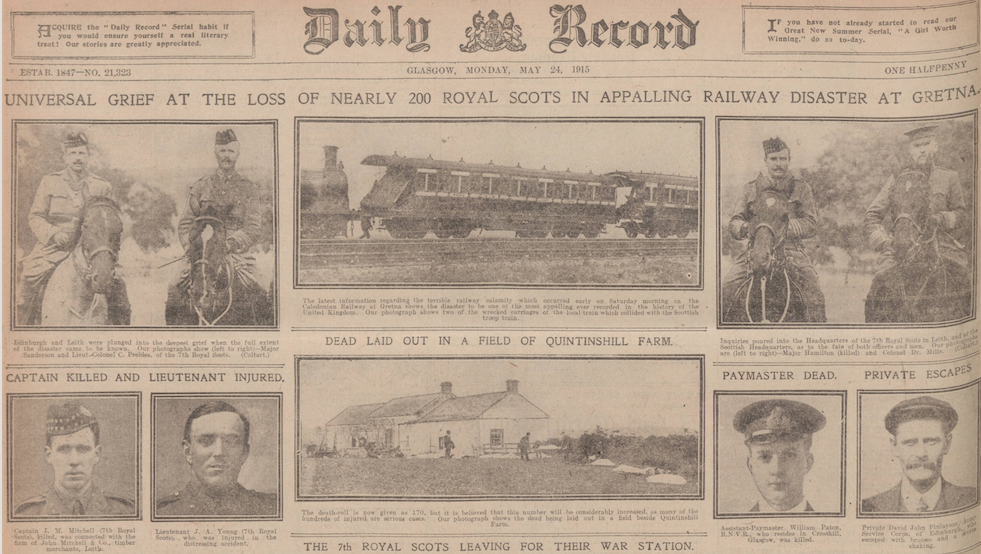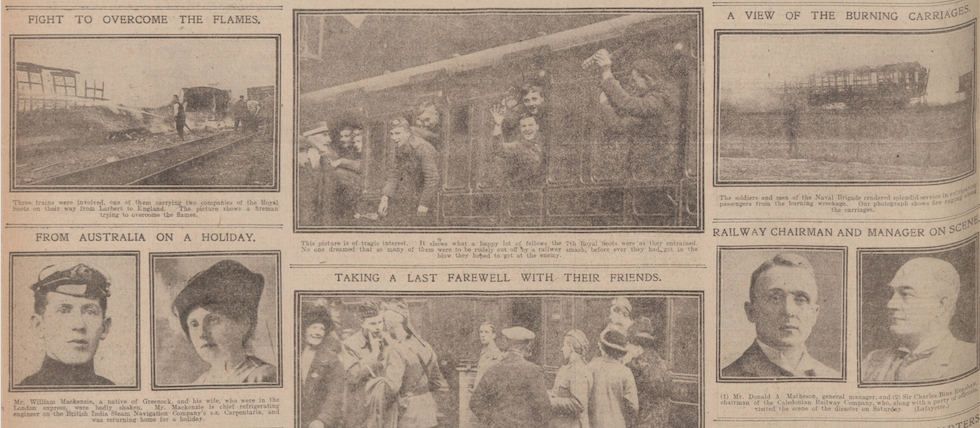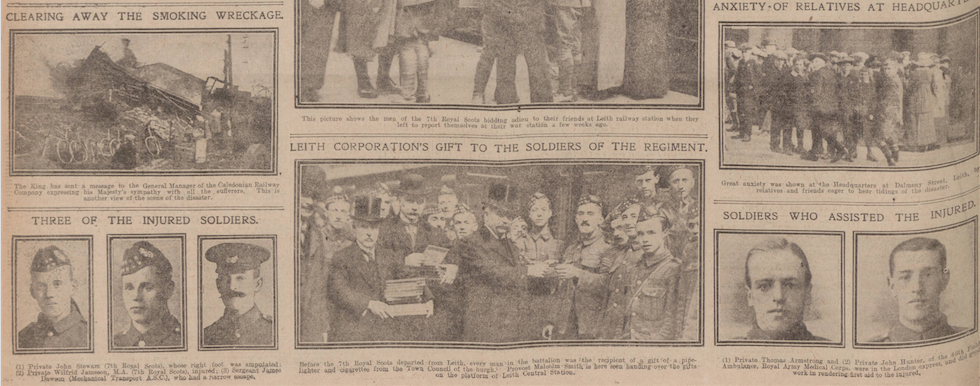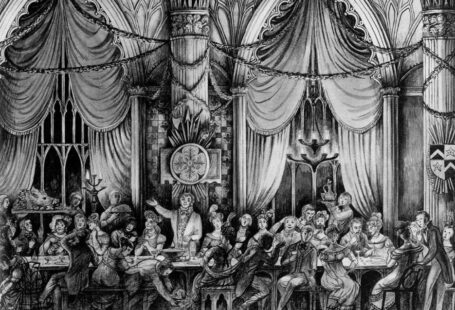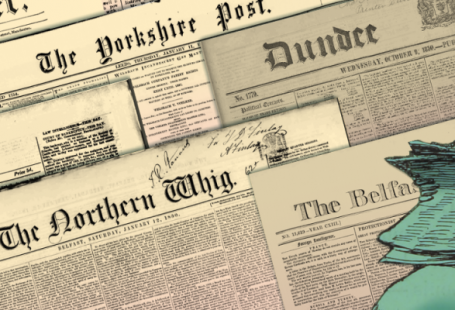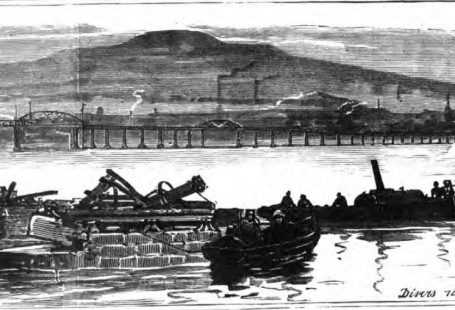100 years ago today, the worst rail disaster in British history occurred at Quintinshill near Gretna Green in Dumfriesshire, Scotland.
On May 22nd 1915, a devastating crash involving a total of five trains, killed 226 people and injured a further 246. The vast majority of those killed were territorial soldiers of the 1/7th (Leith) Battalion, Royal Scots, on their way to participate in the Gallipoli campaign.
Disaster stuck when a troop train headed for Liverpool struck a passenger train that had been moved onto the main line at Quintinshill. Moments later, an express train smashed into the wreckage. The gas powered lighting system on the express train ignited, triggering a fierce blaze that engulfed all three as well as a further two other undamaged trains in a matter of minutes.
Many of the troops were killed as a result of the initial collisions although the fire proved equally devastating. Due high levels of wartime traffic on the railways, railway companies had to pressed obsolete carriages with wooden bodies and frames into service. These carriages had very little crash resistance and were lit using the Pintsch gas system. When gas reservoirs attached to the underframe of the carriage ruptured, the escaping gas ignited from the coal burning fires of the engines. A lack of lack of available water meant that, despite the valiant efforts of Railway staff the Carlisle fire brigade, it was not possible to extinguish the blaze until the following day.
The troop train had consisted of 21 vehicles and apart from the rear six, which had broken away during the impact and rolled back along the line. The entire train was consumed in the fire.
Many bodies could not be recovered. Those that were recovered were buried together in a mass grave in Edinburgh’s Rosebank Cemetery.

The cause of the accident was ruled to be the malpractice of two signalmen, George Meakin, and James Tinsley. Both men were charged with manslaughter in England, then convicted of culpable homicide after trial in Scotland. After a year in prison, both Meakin and Tinsely were released and re-employed by the railway company, although not as signalmen.



